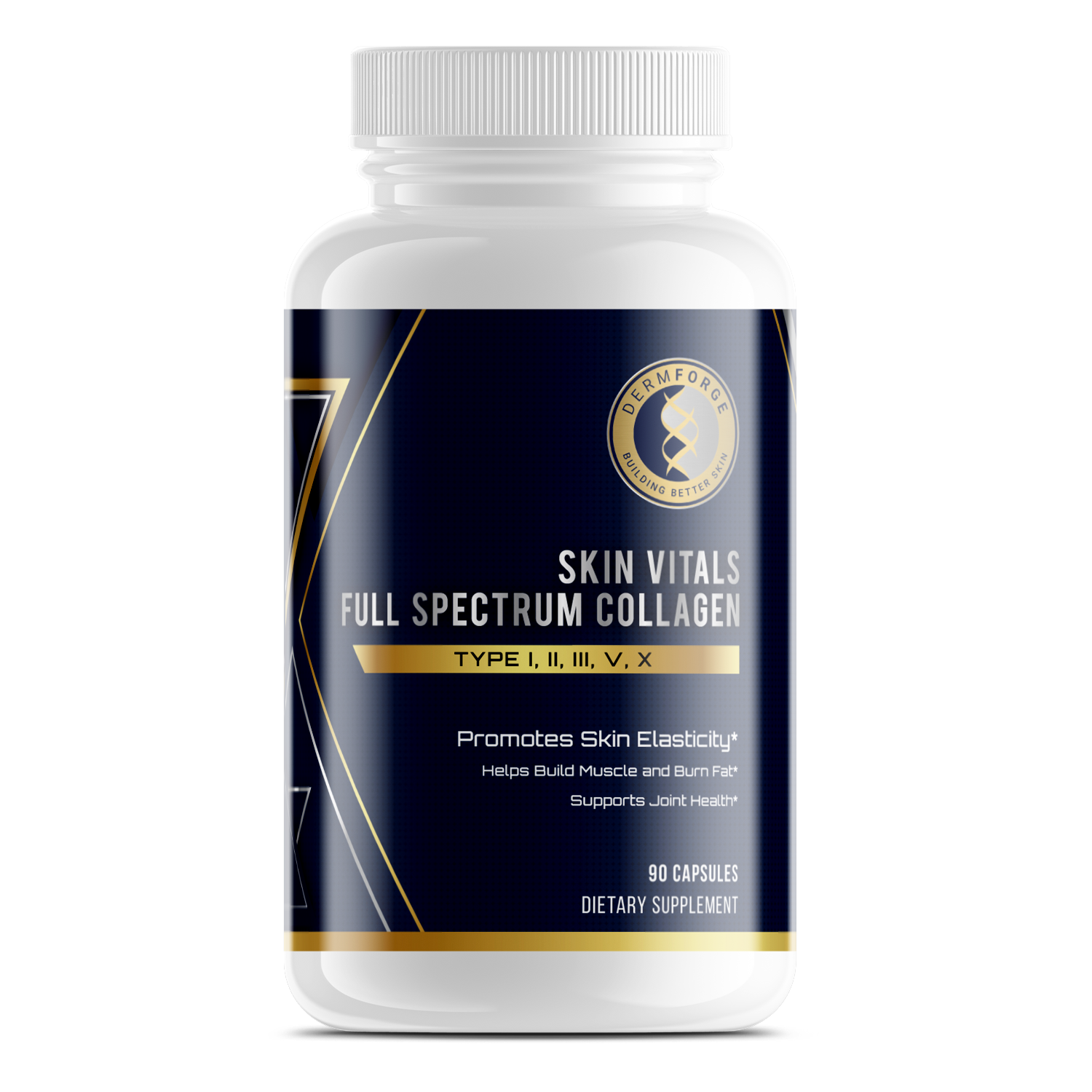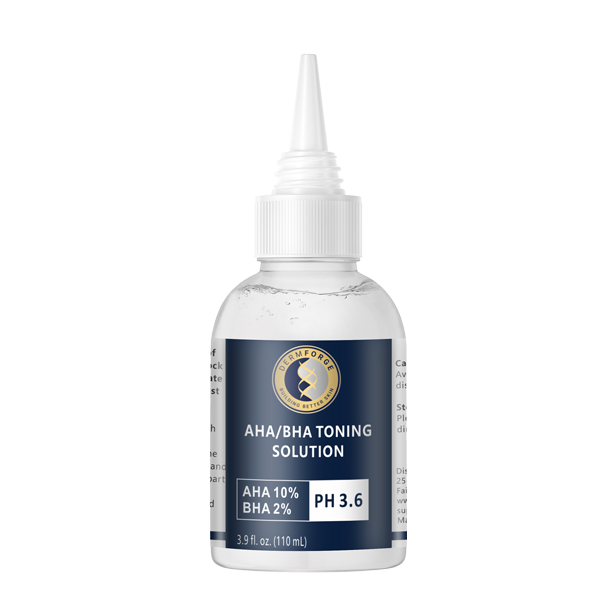Many people look for ways to refresh their complexion and improve overall radiance. One of the most effective options is brightening skin with Vitamin C. Therefore, this powerful antioxidant has become a trusted choice for many routines designed to target dullness and discoloration.
Vitamin C supports your skin by fighting free radicals caused by sunlight and pollution. Additionally, it promotes collagen activity that helps maintain firmness and smoothness. Therefore, regular use not only protects your skin but also contributes to visible improvements in tone and texture.
You may notice Vitamin C mentioned in many different forms, from serums to creams. However, the benefits remain consistent across most products. Additionally, it helps reduce the appearance of dark spots and uneven areas, leading to a clearer and brighter look. Therefore, its versatility makes it suitable for a wide range of skin concerns.
Consistency is important when using Vitamin C effectively. Additionally, pairing it with supportive ingredients and sun protection increases its benefits. Therefore, learning how Vitamin C works and how to apply it properly helps you achieve lasting results for your skin.
By understanding why Vitamin C is valued, you can make informed choices about adding it to your routine. Additionally, knowing what to expect allows you to set realistic goals. Therefore, this ingredient continues to stand out as a reliable step toward healthier, radiant skin.
What Vitamin C Does for Your Skin
Vitamin C is one of the most studied skincare ingredients because of its powerful role as an antioxidant. It helps protect your skin from environmental stress that contributes to premature aging. Therefore, many people use it to support a healthier and more refreshed appearance.
As an antioxidant, Vitamin C helps neutralize free radicals before they can cause harm. Free radicals are unstable molecules created by sun exposure and pollution. Additionally, Vitamin C supports the skin’s natural defenses, which makes it an effective step in daily routines. Therefore, consistent use helps maintain a stronger and healthier-looking complexion.
Vitamin C also plays an important role in collagen support. Collagen keeps your skin firm, smooth, and resilient. However, natural production decreases over time, leading to fine lines and wrinkles. Additionally, Vitamin C promotes collagen activity, which helps reduce these visible changes. Therefore, adding it to your routine supports a more youthful appearance.
One of the most popular uses is brightening skin with Vitamin C. It helps reduce dullness and targets uneven skin tone. Additionally, it works on dark spots by slowing excess pigment production. Therefore, with regular use, your skin can look brighter, clearer, and more even.
By understanding what Vitamin C does for your skin, you can see why it is widely recommended. Additionally, its benefits extend beyond brightness to protection and support. Therefore, making it part of your daily routine helps you achieve healthier, radiant skin over time.
How Vitamin C Helps Brighten Complexion
Vitamin C is well known for its ability to brighten the complexion. It works by targeting the pigment that causes dark spots and uneven tone. Therefore, with consistent use, Vitamin C can help create a clearer and more radiant appearance.
Dark spots often develop from sun exposure, acne, or the natural aging process. However, Vitamin C slows the production of excess pigment in your skin. Additionally, it helps fade existing marks by interfering with melanin formation. Therefore, many people use it to improve discoloration and achieve a more even skin tone.
Vitamin C also supports a fresher overall look by reducing dullness. Dead cells and environmental stress can make your skin appear tired. However, Vitamin C helps counteract these effects and refreshes your skin’s surface. Additionally, its antioxidant properties contribute to a brighter and healthier glow. Therefore, your skin can look more energized and luminous over time.
Another advantage is how Vitamin C pairs with other products to amplify brightness. Hydrating ingredients work alongside it to plump the skin, which improves light reflection. Additionally, smoother skin texture makes brightness more noticeable. Therefore, brightening skin with Vitamin C is not only about fading marks but also improving how your skin reflects light.
By incorporating Vitamin C into your daily routine, you support both immediate brightness and long-term clarity. Additionally, its ability to fight pigment, fade marks, and refresh skin makes it a versatile tool. Therefore, it remains one of the most trusted ingredients for achieving a brighter, more radiant complexion.
Different Forms of Vitamin C in Skincare
Vitamin C appears in skincare in several different forms. Each version offers unique qualities while aiming to deliver similar brightening and protective effects. Therefore, understanding the differences can help you choose the formula that best fits your skin’s needs.
L-ascorbic acid is the purest and most common form of Vitamin C. It is known for strong antioxidant power and effectiveness. However, it can be unstable and may cause irritation for some skin types. Additionally, it often requires specific packaging to maintain its strength. Therefore, it is best suited for those seeking powerful results and willing to monitor skin response.
Sodium ascorbyl phosphate is another form widely used in products. It is gentler and more stable compared to pure L-ascorbic acid. Additionally, it is less likely to irritate sensitive skin while still providing protective and brightening effects. Therefore, it can be a good option if you want benefits with reduced risk of discomfort.
Magnesium ascorbyl phosphate offers yet another variation of Vitamin C. It is water-soluble and generally well tolerated by many skin types. Additionally, it supports hydration while helping improve brightness and evenness of skin tone. Therefore, it is often found in creams or lotions designed for daily use.
Brightening skin with Vitamin C can be achieved with any of these forms, but choosing the right version matters. Additionally, considering your skin type and tolerance helps you find the product that delivers results without irritation. Therefore, understanding these differences allows you to make a more informed decision when adding Vitamin C to your routine.
How to Use Vitamin C Safely
Using Vitamin C safely in your skincare routine requires attention to concentration, layering, and how your skin reacts. Therefore, starting carefully helps you gain benefits without discomfort.
Concentration levels are an important consideration. Lower strengths, around 5 to 10 percent, are often easier for beginners. However, higher concentrations between 15 and 20 percent can deliver stronger results for more experienced users. Additionally, starting low allows you to see how your skin responds before moving higher. Therefore, selecting the right strength helps you build comfort over time.
Layering Vitamin C with other products requires some thought. It pairs well with hydrating ingredients like hyaluronic acid. Additionally, combining it with sunscreen during the day enhances overall protection against environmental stress. However, using it alongside strong actives like retinol or exfoliating acids may increase sensitivity. Therefore, alternating such products on different days is often a safer choice.
Patch testing is another step that supports safe use. Applying a small amount to a discreet area helps identify possible irritation. Additionally, this test allows you to adjust your approach if redness or sensitivity appears. Therefore, patch testing provides a simple way to avoid discomfort before applying Vitamin C across your face.
Brightening skin with Vitamin C is effective when used thoughtfully. Additionally, balancing concentration, layering carefully, and testing for sensitivity all support a safe and consistent routine. Therefore, with patience and care, Vitamin C can remain a reliable step toward healthier, brighter-looking skin.
Pairing Vitamin C with Other Ingredients
Pairing Vitamin C with other ingredients can improve its effectiveness and support your overall skincare routine. Therefore, choosing the right combinations matters for results and comfort.
Hyaluronic acid is a well-known companion for Vitamin C. It hydrates your skin and helps maintain moisture balance after application. Additionally, this pairing creates a smoother surface and enhances the brightening effect. Therefore, layering hyaluronic acid after Vitamin C works well for many skin types.
Vitamin E is another ingredient that pairs effectively with Vitamin C. Together, they provide stronger antioxidant protection against environmental stress. Additionally, this combination supports skin repair while helping improve radiance. Therefore, many formulas include both ingredients to maximize benefits in a single product.
However, not all pairings are recommended. Combining Vitamin C with retinol or strong exfoliating acids may cause irritation. Additionally, using multiple active treatments at once can overwhelm your skin. Therefore, alternating Vitamin C and other actives on different days is often a better approach for balance.
Brightening skin with Vitamin C becomes easier when it works alongside gentle and supportive companions. Additionally, combining it with hydrating or antioxidant ingredients enhances benefits without unnecessary sensitivity. Therefore, thoughtful pairings help you build a routine that is both effective and comfortable for your skin.
What Results to Expect Over Time
Vitamin C delivers noticeable improvements, but results take time and consistency. You should not expect dramatic changes overnight. Therefore, setting realistic expectations is important when adding it to your skincare routine.
Most people begin to notice brighter and smoother skin within several weeks. However, it can take longer for dark spots to fade. Additionally, your skin type, product concentration, and frequency of use all influence how quickly you see results. Therefore, patience and regular application are key.
With ongoing use, Vitamin C continues to support collagen and protect your skin from environmental stress. Additionally, consistent application helps prevent new discoloration from developing. Therefore, improvements in tone, texture, and clarity build gradually over months.
It is also important to support Vitamin C with other healthy habits. Sunscreen helps maintain brightness by protecting against new pigment. Additionally, pairing Vitamin C with hydrating ingredients improves comfort and enhances results. Therefore, consistency across your entire routine matters as much as the ingredient itself.
Brightening skin with Vitamin C is most effective when you stay committed. Additionally, realistic timelines help you stay motivated to continue. Therefore, focusing on steady improvements rather than immediate changes will help you achieve healthier, radiant skin over the long term.
Conclusion
Vitamin C continues to be one of the most trusted ingredients for skincare. Its ability to protect, brighten, and support collagen makes it versatile. Therefore, it remains an important part of routines designed to improve tone and texture.
Consistency is the foundation of effective results. However, your patience matters as much as the product itself. Additionally, improvements appear gradually and continue to build with time. Therefore, making Vitamin C part of your routine can support lasting benefits for your skin.
Pairing Vitamin C with complementary ingredients further enhances outcomes. Additionally, thoughtful layering and safe application prevent irritation and protect your skin barrier. Therefore, understanding how to use Vitamin C makes the experience more effective and comfortable.
Brightening skin with Vitamin C is not a quick fix, but it is a dependable way to improve your complexion. Additionally, its combined antioxidant and brightening effects provide both short-term radiance and long-term protection. Therefore, this ingredient continues to stand out as a reliable choice for healthier, brighter-looking skin.






